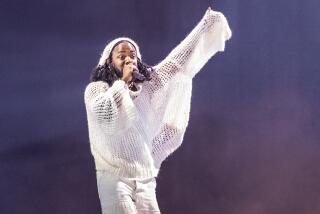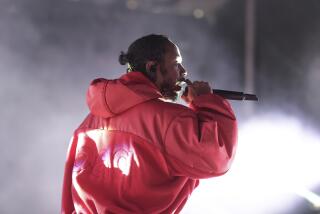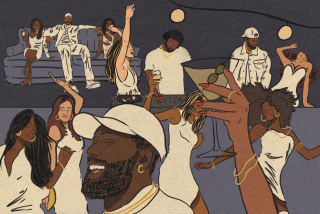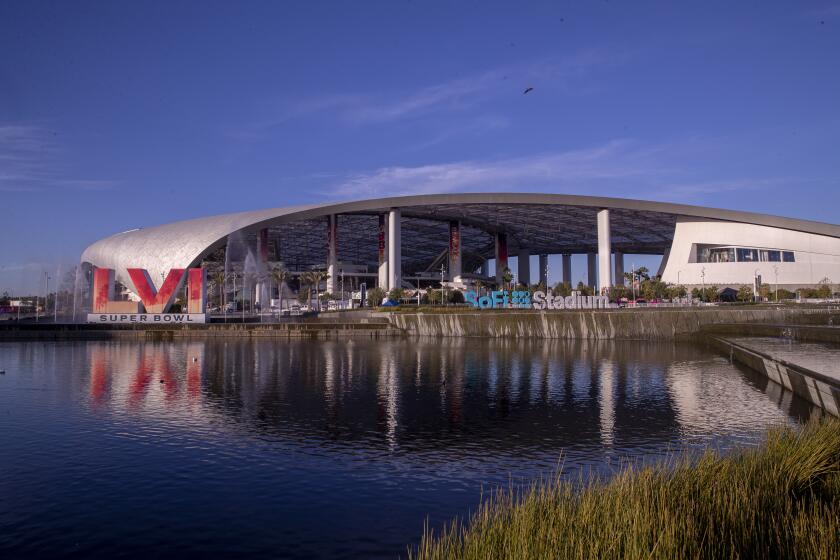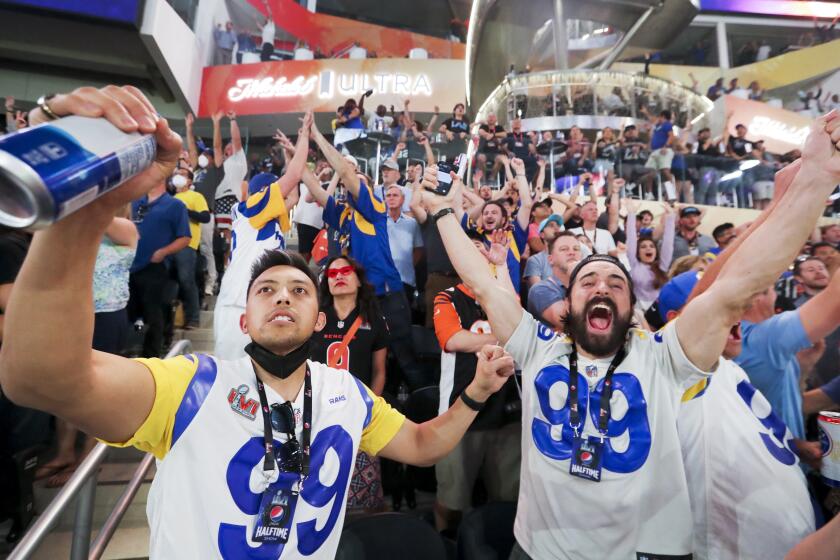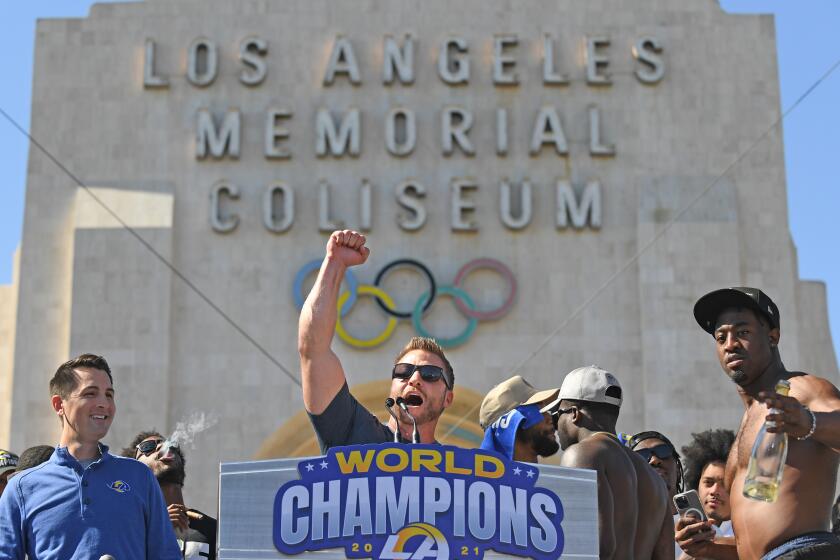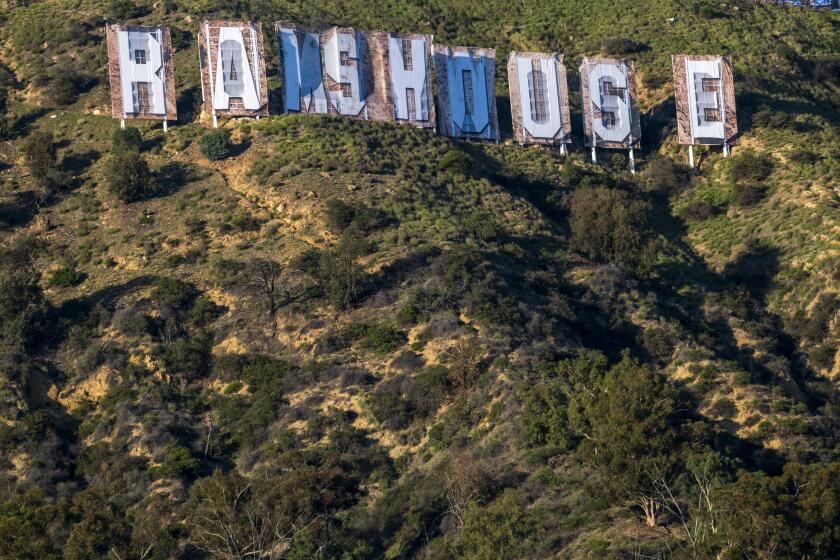Column: Finally, the world saw the exuberance of Black life celebrated at Inglewood’s Super Bowl
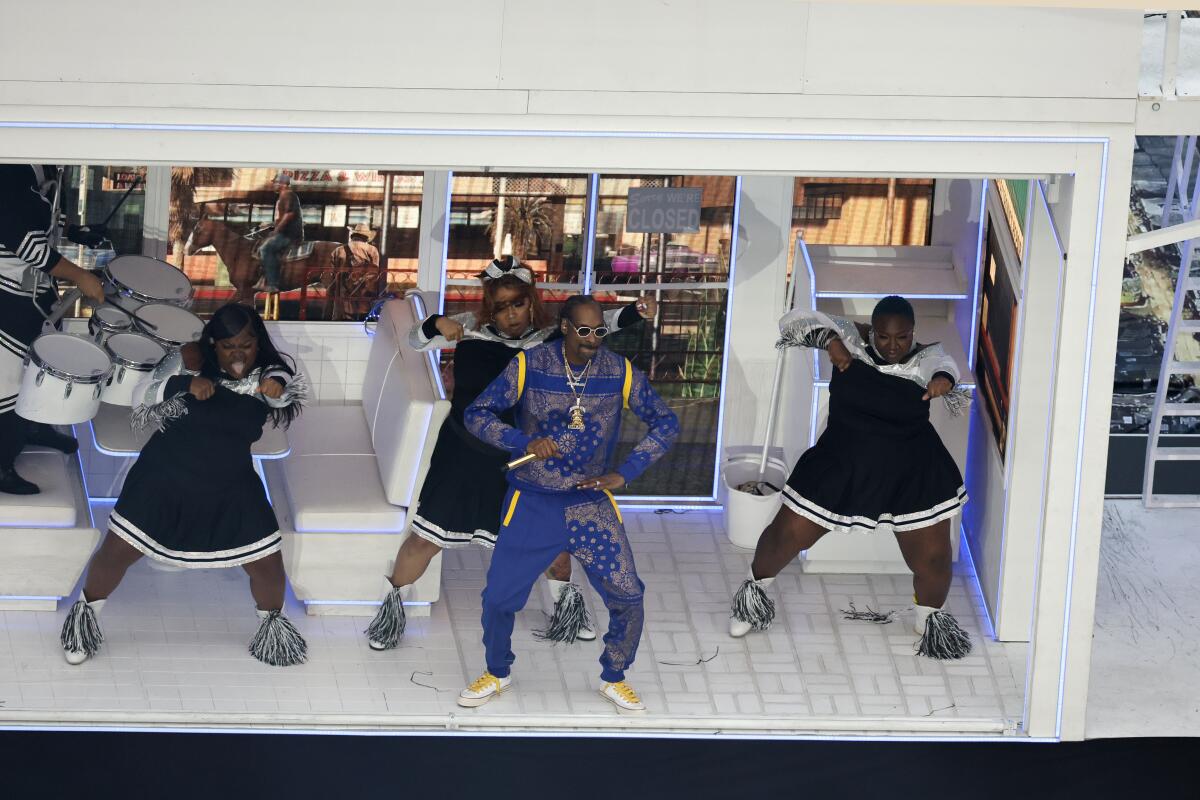
I’m proud of the Rams and delighted by their Super Bowl triumph. But my greatest joy of the day didn’t come from a Cooper Kupp touchdown or an Aaron Donald tackle.
It was sparked by the history-making halftime show, where the style, soundtrack and shine of Black life were exuberantly displayed on the world’s brightest stage.
This was a show that roared “I SEE YOU!” It brought old-school hip-hop — in all its rule-bending glory — into living rooms where sagging pants and anti-police rants would never be allowed. It showcased for the world how Black creativity drives culture change.
I watched it with my millennial daughter, and we both claimed the show spoke directly to us.
She knew all the words to Kendrick Lamar’s “Alright,” a song of hope and resilience that became a protest anthem. And I, a boomer, can still sing along with Snoop, Eminem and Dre.
I was moved to tears by the raw voice of Mary J. Blige, reflecting on her struggles over the years. And my daughter was thrilled beyond measure by the full-figured Black dancers, strutting their stuff in glittery skin-tight costumes.
The images resonated as much as the music. Finally “thick” women — a compliment in our world — were getting their due on the stage. And the men marching in unison in Kendrick Lamar’s performance reflected the precision of “step show” routines that are the signature of Black fraternities.
The stars — Kendrick, Mary, Dr. Dre, Snoop Dogg, Eminem and 50 Cent — may have mellowed, but their swagger hasn’t faded. These are old-school music makers who helped put rap on the map. They’ve been through too much to be bothered by what haters might think.
They endured years of criticism by finger-waggers who faulted hip-hop for its cringe-worthy excesses: demeaning women and glorifying the outlaw life. But the criticism missed the primary point of the music. Hip-hop spoke the language of streets, flagging important social issues — such as rampant drug addiction, social inequality and police brutality — before they showed up on our mainstream radar screen. It was divisive by design.
On Sunday, the subversiveness of the genre was obscured by the spectacle, but the vision and boldness of the innovators was clear.
Indeed, social media was buzzing with both praise and venom after the halftime show. And a lot of folks were simply surprised that “American culture” had evolved enough to “allow” rap music to commandeer the game stage.
Note to y’all on that: Black culture is American culture — and we stopped asking permission generations ago.
There were eyebrows raised three years ago, when Jay Z, hip-hop’s first billionaire, partnered with the NFL on entertainment ventures, given the league’s plantation mentality.
But on Sunday, the renegade spirit of hip-hop carried the day.
It’s been rumored that NFL officials ordered the singers not to disparage the police or kneel, à la Colin Kaepernick. The NFL denied that, but they deny a lot of things that are probably true.
And anyway there was Eminem solemnly taking a knee, and Dre reminding us he is “still not loving police.” They pioneered and they’ve persevered. There is something to be said for that, particularly in these difficult shape-shifting times.
And while I’m glad the National Football League offered the stage to hip-hop royalty, I don’t see this as a reflection of a changing NFL.
Colin Kaepernick still doesn’t have a job. There are only two Black coaches in a league where 70% of the players are Black. And even as the NFL grudgingly pays concussion benefits to players disabled by damage suffered on the field, Black players are financially short-changed by the formula the league uses.
Snoop Dogg said it best in a session with journalists days before the big game: “We know a lot of people didn’t want hip-hop on stage. Well, we here now, and there ain’t nothing you can do about it.”
More to Read
Sign up for Essential California
The most important California stories and recommendations in your inbox every morning.
You may occasionally receive promotional content from the Los Angeles Times.
